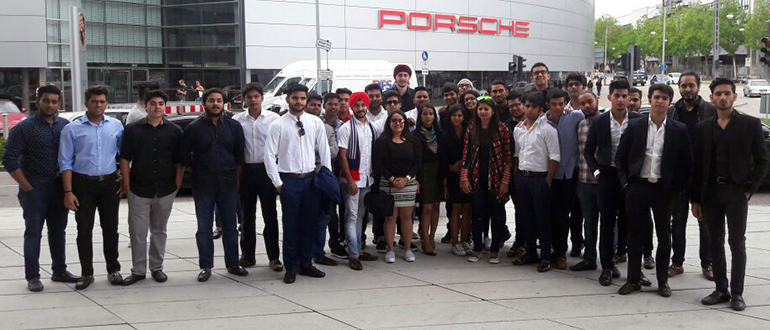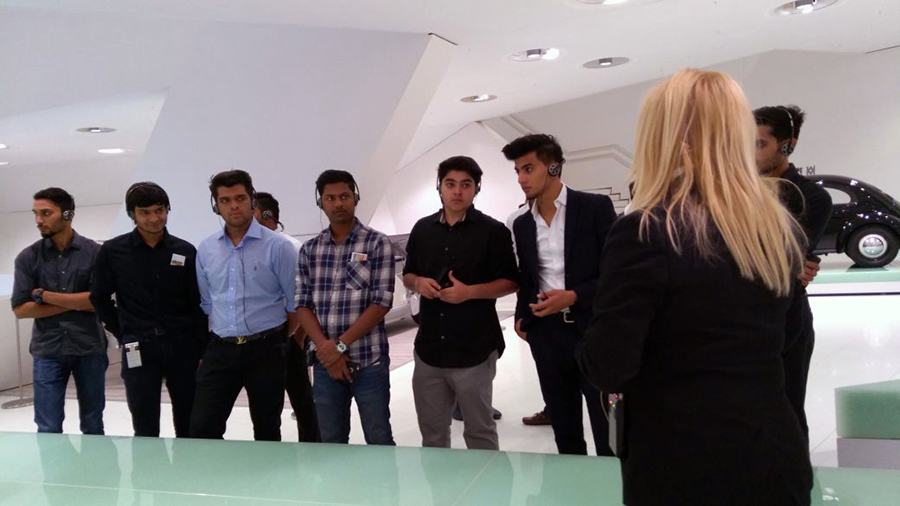Communication, undeniably, is essential for any business to thrive. Especially in today’s context, when most of the organisations are located in various corners of the world, communication holds an all the more important role as people from different cultures come on a common platform to work together and therefore, ensuring effective exchange of ideas and information among people of diverse backgrounds becomes not only an important but a critical function of the leaders in order to drive success. Elizabeth A. Tuleja’s Intercultural Communication for Global Business – How leaders communicate for success offers a brilliant tool to those who wish to understand various dimensions of inter-culture at play, and importance of intercultural communication, consequently highlighting how to learn and hone communication skills. The book offers an exhaustive account of how the changing world is making intercultural communication imperative to the achievement of business objectives.
Tuleja interestingly draws historical references from classic works of Hall, Hofstede, Trompenaars and Kluckhohn among others to show the importance of intercultural communication in a business set-up and states that today culture and business are interwoven to an extent that “we have reached a point of no return with the cultural imperative – it is unavoidable, it demands our attention, it is an obligation, and it is a necessity if we are to survive.” And therefore, we must learn how to interact with people with higher levels of sensitivity and openness. Though the book acknowledges the plurality of definitions of culture as it is a wide, abstract and complex concept, the author also highlights that peoples’ values, beliefs, attitudes and behaviours may be defined as the building blocks of culture.
Communication in a business environment requires us to comprehend human nature, social behaviour, and mental behaviour, and use communication to interact with others thereby making the four sciences, namely anthropology, sociology, psychology and communication the “four legs” when we “think of the field of management as being the seat of a chair”.
Intriguingly, the author makes the readers reflect upon who they are and better understand various aspects of their identity by focussing on their relationships, jobs, status and how these things define them because according to her, the people with whom we relate and network shape our self-image. Further, she suggests that recognising the different cultures of our own country can be the starting point to understand difference.
The author presents the Value Orientations Model developed by the anthropologists, Kluckhohn and Strodtbeck. According to them, world views may be imperceptible forces which influence our life and profession. In this context, to gain an understanding of people of different cultures, it is essential to understand their view of the world. The Value Orientations Method, therefore, serves as a tool to understand core cultural differences related to five fundamental orientations of the human beings, namely Time Sense, Activity, Social Relations, People and Nature and Human Nature. An understanding of these five aspects facilitates better understanding of the organization.
The author concludes by emphasising that certain norms of global leadership are universal. However, the manner in which they are carried out depends on the context and the situation in different cultures. Hence, people across various civilisations and organisations have distinct criteria for evaluating success of leaders.
Tuleja presents a series of case studies to show how organisations have set-up themselves in various corners of the world and gained prosperity by working with mixed cultures. Simultaneously, the book also offers an account of certain challenges encountered by some organisations while trying to work in cross cultural groups. The various case studies include experiences of Wal-Mart, Nike, Cheerios Commercial, McDonalds, Starbucks among others.
All in all, the book is a must for students and teachers of management, employees and leaders working in various organisations.






